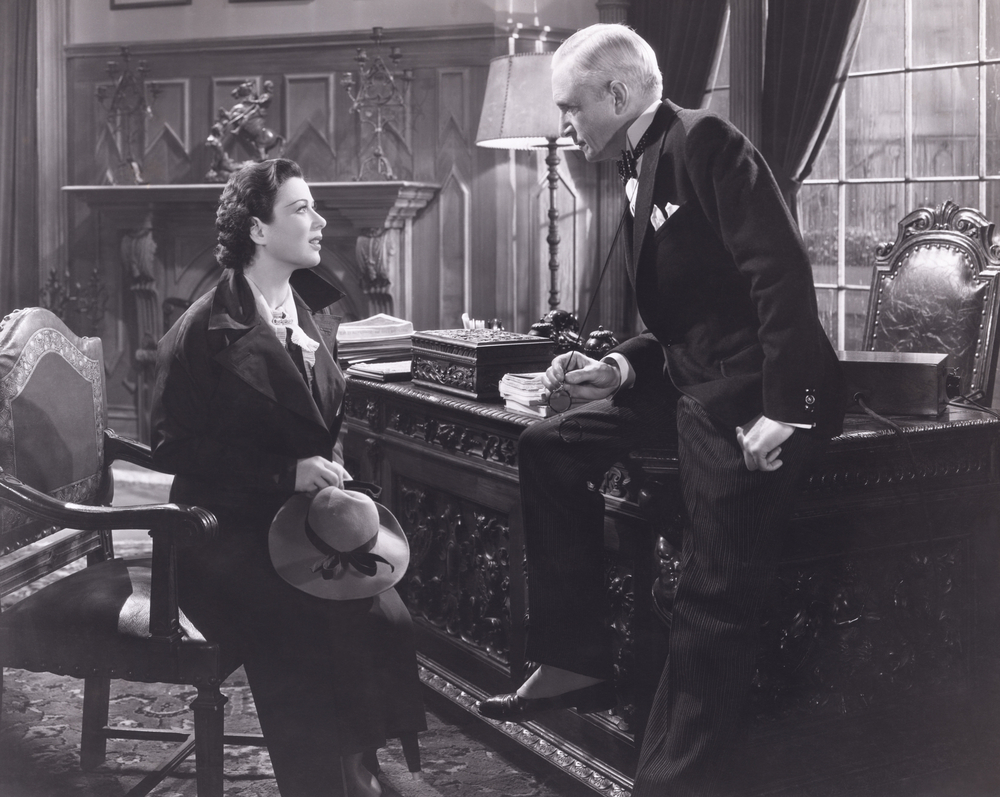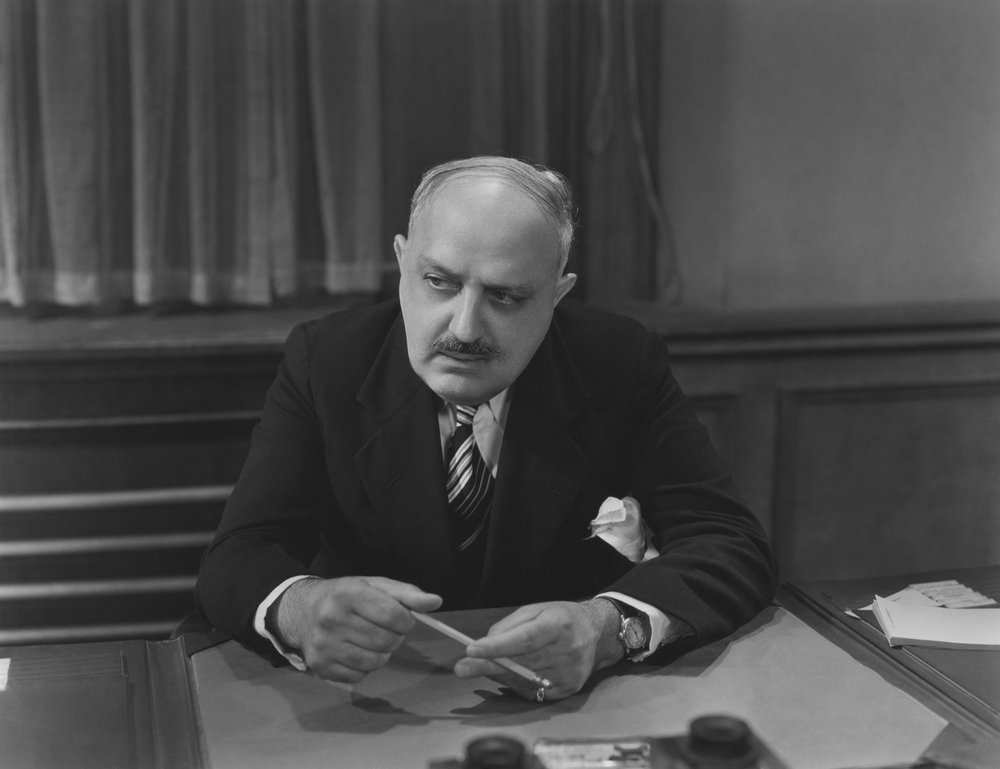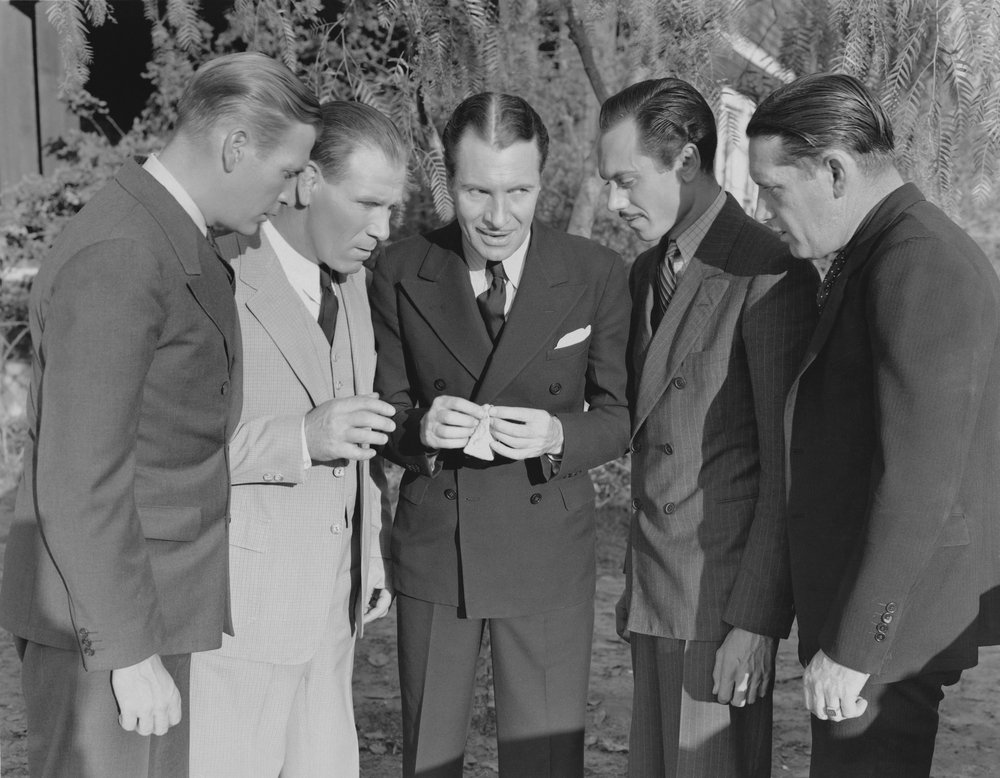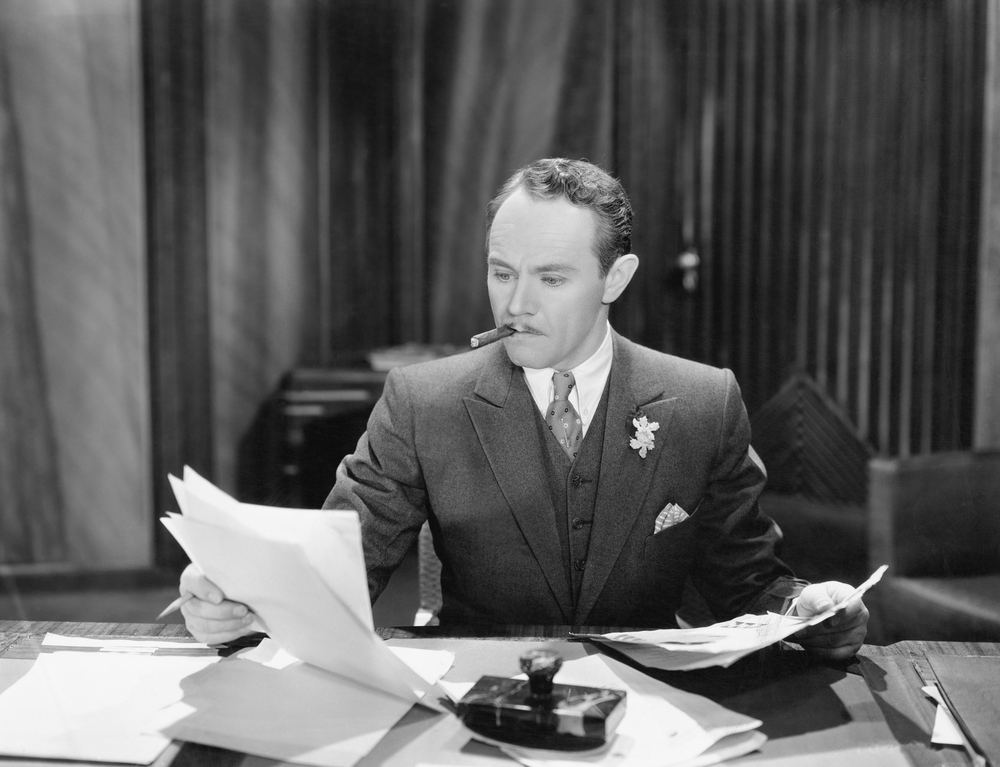California Film and TV Production Attorney Sebastian Gibson

California Film and TV Production Attorney Sebastian Gibson
The Role of Producers and Attorneys In Film and TV Productions
California Film and TV Production Attorney Sebastian Gibson will tell you there are literally tens of thousands of producers, some with production companies, some without, some with development money or even some financing, many more without, who desperately want to get their script, concept for a television series, limited episode TV series or reality show made. They’re not really competing with each other. They’re competing for financing. They’re creating projects within an industry which rewards success but makes obtaining the funding to be successful extremely difficult.
At the early stage of a project, a producer is in charge of every aspect of the production process, from forming a team, to hiring an attorney such as California Film and TV Production Attorney Sebastian Gibson to form a corporate entity, to obtaining rights of others or they may themselves be involved in the creative process.
But when the project heats up, there can be any number of different producers on the project, each with different roles.
An executive producer may be in charge of the budget, or business aspects of the project, the budget, or they may simply be an executive producer in name only after starting the creative process for a project and then persuading another producer and others to become involved in it.
In films, some executive producers have control over every aspect of a film. They will supervise all the other producers or they may limit their involvement to being an advisor, lending their name to a project or they may be relegated to this title as others assume the real control over the film.
In television, the executive producer will generally supervises the creative content and all of the financial aspects of a production. If there is more than one, they may be the leading executive producer or a lesser one.
The line producer, however is the real puppet master on a film or television program. They are the person who has the primary responsibility for everything from pre-production until the production is complete. Like a chief operations officer, the line producer has the responsibility for supervising, recruiting, and organizing all of the shooting as well as all of the administrative and financial responsibilities.
If there is a supervising producer, they supervise the creative process of screenplay and they may take on the responsibility of that of a hands-on executive producer supervising the other producers.
If there is one or many co-producers of a film they will likely perform all of the various functions and roles a single producer would have on a film or television project.
There can also be a coordinating producer, sometimes called a production coordinator who, just like the title suggests, coordinates the work of a number of other producers on a project.
Assistant producers help other producers or a single producer. There are also location or segment producers with responsibility over a location shot or the segment of a film, and a film producer who may oversee all of the productions at the various outside locations for a project.
For the purposes of this article though, we shall simply refer to the “producer” or “filmmaker” as there are many factors which determine if a film will simply have one producer or numerous producers, not the least of which is the size of a film’s budget and the division of responsibilities among several producers.

The Right California Entertainment Lawyer and the Law Firm of California Film and TV Production Attorney Sebastian Gibson
From Malibu to San Diego where California entertainment attorney Sebastian Gibson graduated from the University of San Diego School of Law, to his current offices in the Palm Springs area and Newport Beach to London where he has practiced law extensively, California Film and TV Production Attorney Sebastian Gibson is the right choice for all your entertainment film and television productions, projects in development and film and TV agreements for productions in the U.S., the UK and around the world.
With offices in the Palm Springs area where Live Nation will be opening a new arena in 2022 to Palm Desert to the eastern portion of the Coachella Valley where AEG subsidiary Goldenvoice produces the Coachella Valley Music and Arts Festival and the Stagecoach Music Festival, Sebastian Gibson is the Coachella Valley’s premier entertainment lawyer.
California Film and TV Production Attorney Sebastian Gibson, the Right Choice
The law firm of California Film and TV Production Attorney Sebastian Gibson not only has Southern California covered, from Palm Springs to Orange County, but we have the world covered as well from London where some of the finest films and television series continue to be produced.
For many years one of the world’s most iconic entertainment law firms for modeling and publishing, representing models and writers throughout the world, California Film and TV Production Attorney Sebastian Gibson is on track to becoming one of the world’s leading law firms for music, film, television, theater and worldwide entertainment events in addition to its expertise in the fields of modeling and publishing.

Film and Television Projects for Streaming Services
There has never been a better time for producers, production companies, writers, directors, and creators of projects for film and television with the popularity and growing number of streaming services.
At the Law Offices of California Film and Television Production Agreement Attorney Sebastian Gibson, we can review and negotiate your Netflix Film and Scripted TV Series Streaming Entertainment Contracts, HBO Scripted and Reality TV Series Production Entertainment Agreements, Amazon Prime Video Film Reality and Dramatic Scripted Limited TV Series Agreements, Hulu Film Reality and Scripted Limited Television Series Streamer Contracts, BBC Film Scripted and Limited TV Series Production Development Contracts, and your film and television contracts with Disney Plus, Peacock, Discovery Plus, Paramount Plus and Apple TV.

What Does A Producer Really Do?
First, a producer either conceives the general premise and tone of a film or TV series to be produced, or if they’re not involved in the creative development, they obtain the rights to a book, a script or other material which can form the basis of their film or TV project.
Like a political candidate, a film producer must become an expert at, and learn all the rules (SEC and State laws), which apply to raising money. Also like a politician, they spend a great deal of time trying to find the funding they need to produce a quality product. Even an independent TV producer must be able to raise money if they’re going to be able to develop a series outside of the studio framework to the point where they have a polished pitch, bible and other materials to interest a network, studio or streaming service in the project.
If a film producer isn’t good at obtaining investors, a film simply won’t get made. They need development money, the hardest to obtain, and after that, they need whatever amount of funding the budget they’ve created tells them they need for the production they envision.
If their project is a TV series, the producer first conceives the concept of the series, writes and rewrites and rewrites the pitch, and a bible and pitches the series to a studio, network or a streaming service like Netflix.
If the entity pitched to greenlights the project, the producer takes the notes of the studio or network or streamer executives and hires a writer to write the first script which will then rapidly be critiqued and ripped apart, by the studio or network executives.
If the project is a film, again the producer hires a screenwriter and maybe additional writers, a director and A-list actors to make the project look more attractive to a studio, network or possibly another production company.
When the producer obtains financing, by means of a securities offering or an advance from a distributor or by other means, the producer oversees filming operations, not a small job as seen below. There may be other producers involved as well, as indicated above, including executive producers, a line producer, a supervising producer, co-producers, a production coordinator, assistant producers, segment producers and location producers.

Day-to-Day Duties of a Producer
That’s just a general outline of a producer’s responsibilities. The day-to-day responsibilities that pull him or her as well as the director in a dozen different directions each day are much more numerous and all of them require the producer’s involvement or that of the other producers assisting him in the production. In addition, the producer must support and resolve differences between the cast members, the director and other over-the-line crew.
The producer will need to have chosen a cinematographer, locations for the filming, developed a shooting schedule and a budget, and a detailed plan for production, distribution and marketing will have been created.
There will be problems with the actors and others involved in the creative aspect which will need to be resolved, often daily. The producer may wish to offer suggestions to the director, which may infuriate the director, and if that occurs in a substantial way, the director may quit or have to be fired and replaced.
If shooting is over budget, the producer will need to spend time massaging the concerns of the studio or of investors. If the money is tight, tougher decisions will need to be made.
If there is buzz on social media for the film, it may not be too soon to consider distribution, advertising, and even merchandising issues. If there isn’t any buzz started on social media, the producer may need to delegate creating some buzz to other members on his or her team.
The final cut will need to be reviewed, perhaps re-edited, additional scenes shot again, and the distributor’s advertising including commercials, social media campaigns, film festival decisions, and even the film’s poster will all need the producer’s input, time and worry. A wise producer leaves little of the decisions to others when it comes to aspects that can affect the viability of the project while leaving certain matters, such as the creative and artistic direction in the capable hands of the director who the producer has chosen and in which the producer has confidence.
Some of the above issues won’t arise, for instance if financing or distribution is not obtained. But in that case, he film may not ever be produced, finished, or if produced, may never be seen in the theaters.
Once the Filming Is Complete, More Work Begins
Once filming is complete, the producer’s job is only half finished, if that. The producer must work with the editors, composers, sound and visual effects supervisors.
Now, another aspect, equally important, of the producer’s work starts. The producer must obtain distribution and devote time to marketing or that amazing film will otherwise just sit on the producer’s shelf while the production company fields angry calls from investors.
The TV series project is different. The pilot needs to be shot, perhaps reshot, and then reedited, and still it may be rejected by the studio or network.
If the TV series was produced outside of the network’s framework, the producer may pitch the TV series to other networks with or without a filmed pilot until either the series is picked up by a network or entity such as Amazon Prime or Netflix, HBO, one of the new streaming services soon to be a competing force, or a British broadcaster, or the producer may eventually give up efforts on this series and go back to developing on other projects instead.

Forming The Production Entity For a Producer by California Film and TV Production Attorney Sebastian Gibson
The production company is the producer’s entity for keeping warm a basket of all of the producer’s film or TV projects. When one of the producer’s projects is about to hatch and the producer decides to turn his or her immediate focus to that one project and begin actual development, obtain development money, and begin employing others and signing contracts.
The producer will in most cases form a separate LLC exclusively for that project. In this way, the producer’s other projects still in the basket of projects the producer keeps warm in his main production company LLC can remain protected in the event the film currently in development or production is never completed, or fails to obtain distribution and the investors’ money is lost.

Business Entity Formation During the Development Stage
All producers need to have a production entity of one form or another. The biggest reason to form a company of some type is to protect one’s assets from liability and at the same time to have a legal entity in place in order to finance films or television projects when they’re ready for development. The question thus arises, what type of entity should a producer form, and when exactly should it be formed?
The production entity can be a corporation, a limited partnership, a general partnership (a very bad idea) or a limited liability company. While there are no statistics readily available, most producers form LLCs for a number of reasons.
In a general partnership, each partner can contractually bind the partnership in dealings with third parties. The partnership not only becomes liable for the acts taken by any of the partners in connection with the partnership’s business, but each of the partners is personally liable for all the partnership debts as well.
A limited partnership has general partners who manage the partnership and are liable for its debts and limited partners who have no control or management functions and are not liable for the partnership debts.
By utilizing an LLC, a producer can protect themselves from liability while at the same time using a company format which is easily managed.
While a producer can operate as a sole proprietorship, there is no such protection other than what insurance coverage they may be able to purchase with all of the exclusions contained in the insurance policy.
General partnerships still expose a producer to liability and while limited partnerships are better if structured appropriately, they are still not as favored as an LLC. Corporations are still used by some producers and would probably rank as the second most favored entity used by producers. A C corporation can go public if so desired.
At all cost, despite filmmaking being a collaborative industry, producers should avoid entering into joint ventures or any other agreements of this type which might allow one partner the ability to stymie the other from making decisions and producing the project to completion. Like a marriage or even a law corporation, breakups happen, people pass away, get tired of the rat race, go on vacation, sometimes permanently, or get into trouble with drugs or alcohol.
While corporations or LLCs can be utilized, their protection can be pierced and the personal assets of its directors reached if the directors of the corporation or the members of the LLC fail to comply with the formalities required of them. There are less formalities with an LLC, however co-mingling personal and entity assets is one of the biggest issues looked at by attorneys seeking to pierce the corporate veil of such an entity.
Among the reasons most producers choose to form an LLC is that the underlying document of an LLC, the operating agreement, can easily be drafted to allocate voting power and management of the production company while still providing the benefits of liability protection for the producers of the film or television project. Rights of succession can also be addressed should a member pass on and the rights of co-producers can also be addressed in the event they decide they’d rather work for another production company or become less enthusiastic about the production company’s projects.
LLCs have features which make them the preferred entity within the entertainment industry. An LLC limits personal liability as effectively as a corporation. They can determine whether to be taxed as a partnership or a corporation, though be default they are treated as a partnership if there is more than one member. They can thus avoid double taxation like an S Corporation. But they are also flexible in the way they allocate gains and losses. If an LLC has only one member, they are taxed as a sole proprietor and their liability still remains protected just as if the LLC has more than one member.
Board meetings and shareholder meetings are not required to be held on an annual basis like a corporation requires, and they can thus implement decisions quickly without getting approval from a Board of Directors or shareholders. Not all the members of an LLC are required to have voting power which can also make decision making simpler. In fact the manager of an LLC need not even be a member of it.
The personal assets of individual LLC members are protected from the debts of the LLC so long as they don’t commit fraud, follow the formalities of such an entity (which are less onerous with an LLC than a corporation), pledge their personal assets to obtain financing, or co-mingle their personal assets with those of the LLC.
Producers need to form a business entity for their production projects in order to protect themselves from liability, but they should not try to save money by using a service that prepares thousands of corporations monthly all from a template which they use like a cookie cutter to mass produce the same cookies for everyone.
Although a producer can operate as a sole proprietorship, there is no protection for the sole proprietor other than what insurance coverage they may be able to purchase with all of the exclusions contained in the insurance policy.
General partnerships still expose a producer to liability and while limited partnerships are better if structured appropriately, they are still not favored. Corporations can be used, however, the most favored form of entity by film producers today are LLCs.
However, even an LLC’s protection can be illusionary if the directors of the corporation or the members of the LLC fail to comply with the formalities required of them. There are less formalities with operating an LLC, however co-mingling personal and entity assets is one of the biggest issues looked at by attorneys seeking to pierce the corporate veil and attach liability to the owners and managers of the LLC.
One approach to filmmaking is to create one entity to hold a basket of all of the producer’s eggs or in this case, the producer’s projects as the producer begins to mold these early stage concepts into viable possible projects for production. Some initial acquisitions might even be entered into for some of these projects such as book or script options.
Then, only when one project is ready to be hatched and taken to the next stage for financing, the project and the producer’s rights to it are conveyed to a separate LLC. In that way, as the project gets underway, the producer’s other projects remain separate and protected in the group project warming entity.
The LLC for the project being funded on the other hand signs all of the other agreements, hires actors, a cast, a directors and obtains commitments from A-list actors. The newly formed LLC thus owns and licenses the project, and becomes responsible to the investors. Distributors wishing to ensure that all the rights to the project are secure, will look to the individual production LLC’s paperwork and not delve into the LLC simply warming other projects before they’re hatched.

Approaches to Distribution by California Film and TV Production Attorney Sebastian Gibson
Every producer knows how important it is to obtain distribution for their project. Without it, a project is dead. But what are the different approaches to obtaining distribution and how is the playing field changing?
Some producers try to line up distribution partners before production starts, if possible, or at least generate interest in them. Others wait until they have a final cut. Some focus on film festivals to get distribution offers. Others fragment their distribution approaches and seek out distributors for specific territories and platforms. There’s no one right way to do it and what works best for one type of film may not be right for another.
Some producers reach out to the film’s entertainment law firm to develop a plan for submitting their film to film festivals for a distribution sale. While the odds of obtaining large distribution deals are a thing of the past in most instances, utilizing an experienced entertainment law firm can still ensure that the presentation of the film avoids some serious missteps.
Film festivals can help or be a detriment to a producer’s film. Bad reviews, the result of a poorly conceived storyline, bad acting, editing that went awry, or other faults in the film are not the type of buzz a producer wants for their film. Mistakes can cripple a film’s launch and limit if not result in failing to receive any distribution offers. Applying to festivals before a film is ready to be viewed and judged, submitting to the wrong type of festivals for the film, not having an experienced festival team, and making bad distribution deal are just some of the mistakes a producer can make. Bad word-of-mouth after a festival screening is not the type of result a producer looks for.
The hiring of a distribution sales agent or rep hired in advance of any film festivals the film will be shown at is also a must. Discussing what distributors other producers have had experience with is something a producer should try to accomplish at the film festivals they attend.
Hiring an experienced publicist should be done accomplished long before a film is submitted to film festivals to give the publicist time to prepare and assist a producer with social media. A website needs to be created for the film, a Facebook page, trailers, a movie poster, and other materials created to have a cohesive advertising and publicity campaign formulated.
Producers know the importance of obtaining both domestic distribution as well as international distribution. For the latter, most producers choose to look to a reliable foreign sales agent and one with a track record of reliable payment. Foreign distribution deals generally are far too complex with foreign tax credit provisions and other payment structures for most domestic sales agents to be entrusted with the responsibility.

Distribution Conundrums and Negotiation Considerations
Should a producer hold out for the all-inclusive distribution deal or fragment distribution among numerous distributors for multiple different platforms and markets?
While domestic deals with a major distributor can include a minimum guarantee or an acquisition if the film has a lot of festival interest or elements that can make the film a commercial success, it still may not be as lucrative as dealing with numerous different distributors, each specializing in their own separate niche.
While a large distributor might offer a percentage which may at the end of negotiations be better than the higher minimum guarantee offers a producer receives from smaller distributors with less distribution channels. But obtaining payment from distributors who may be more difficult to collect from must be a consideration as well.
The revenue split is one of the two most important factors the producer will be concerned with, the other being the advance. If the revenue split is the most important determinating factor for a producer in evaluating distribution deals, taking a smaller advance may increase the producer’s split of revenues. Indeed, if the offer from a distributor is only a small amount, they should negotiate for a larger percentage of the back end.
If the producer can’t wait 12 months or more or even years to be paid out of a film’s revenues, they may want to try to negotiate a percentage of the revenues as the film takes in money. While this is worth a try, it is easier to ask for this than to find a distributor willing to grant this type of revenue splitting at an early stage.
Sales of foreign distribution rights to foreign territories can also be made in exchange for advance payments a producer can use to finance some or even a large percentage of a film’s production budget.
In today’s world where distributors find niches where they have the most experience, it’s often better for a producer to find distributors who know their territories or platforms best but to also use due diligence to research the distributors’ reputations a producer is interested in before signing any distribution agreements with them.
Distributor Due Diligence Before Offering Distribution
Before distribution can be obtained, a distributor’s E&O insurance company routinely requests a legal opinion from their attorneys to confirm that all the proper legal contracts have been signed with every participant in the creation and development of a project and that the production company is the sole owner of all the rights to the project’s components.
When a distributor looks at a filmmaker’s rights to the work about to be filmed (if contacted that early) or distributed, the distributor looks at the producer’s rights to the script, any underlying book or prior scripts, any collaborators rights, music rights (licensing), location agreements, and more.
A filmmaker must have obtained parental consent for any child actors, actor agreements must be scrutinized, agreements with all of the over the line crew will be looked at as will talent release forms, materials release forms, location release forms, group releases, extra releases, crew deal memos, and anything else that might concern a distributor that the production company needs in order to be able to claim it is the sole owner of the project.

Additional Distribution Considerations and Negotiations
A filmmaker’s ability to modify a distribution contract they’ve been offered depends on a producer’s negotiating strength and the commercial viability of the project. A producer’s objective is to negotiate a large advance payment and limit the length of term and territory of distribution so the producer can negotiate with other distributors better suited for other markets.
The entertainment playing field is constantly changing. Distributors who previously touted their experience in platforms such as home video, no longer the lucrative platform it once was, may not be the distributors best suited for dealing with the large number of competing streaming services today.
The bargaining power of the producer will depend on the track record of the producer, the buzz already out in the public in the press and social media about the film about to be distributed (whether the buzz is good or whether it’s already being thought to be a dud due to the actors, the director or some other reasons), whether the producer has other offers, the size of any such offers, the potential for commercial success of the film, and other factors as well.
Many producers desire to retain certain areas of distribution for themselves. However, if the advance payment from the distributor is contingent on granting full rights of distribution, and the producer has exhausted all other avenues and without the advance payment being offered the film will not get made, the producer may feel they have little option but to grant the distributor full rights of distribution.
What a producer must determine is whether the distributor has the skill to fully distribute the film in all markets, if other producers have had difficulties obtaining payment from the distributor, and if other distributors may not be better suited for the project in question. If it appears the distributor has the knowledge to fully distribute a film and be honest about payments, the producer may grant theatrical distribution rights, free TV, pay/cable, video-on-demand, transactional, subscription and ad-sponsored VOD, home video, semi-theatrical distribution, educational distribution, and transportation (e.g. airline) distribution.
A producer may be able to obtain a negative pick-up whereby a distributor agrees to pay for the cost of completing a film, but they may attach requirements to the deal any deviations from which will require their approval.
If a producer can obtain a distribution guarantee agreement, the producer will need to sell the distributor the film’s full distribution rights. In return, the producer will receive a fee and the negotiated royalty or gross participation in the revenues.
However, since fees are generally not paid until a producer has completed the film and royalties or profit participations are not paid generally until many months after box office receipts roll in, a producer may need to use the distribution agreement and pay for a film completion bond to obtain bank financing and such bonds can unfortunately be quite expensive to procure.

Studio Financed Production Deals and Distribution
Making a picture under the terms of a studio-financed production and distribution deal can be advantageous but also problematic. While a studio’s power to assist in the production of a film and distribute it can greatly improve the potential success of a film, a filmmaker will quickly learn the extent to which they have given up their creative control of the film.
In some cases, the filmmaker may be lucky to continue to have much of any say in the production. The screenplay is likely to undergo major changes and if the producer is the director as well, they will likely be micromanaged in exchange for the possible commercial success that may follow. Before it’s finished, however, the filmmaker may wish they’d made their film for a streaming platform known to let the producer have greater free reign.

Production Agreements Required for Film and TV Productions
In any film or television production, there will be a great many production agreements which must be drafted by an experienced entertainment lawyer such as California Film and TV Production Attorney Sebastian Gibson.
Among the “Above the Line” agreements are agreements between the production company, and any co-producers as to their responsibilities and profit sharing. There may be executive producers, a line producer, a supervising producer, co-producers, a production coordinator, assistant producers, segment producers and location producers.
Other above the line agreements include those with the director, the cinematographer, and the primary cast. Agreements will also be needed with anyone else involved in the creative aspects of the film or television project and these will also require complex agreements. Any profit participation contracts with A-list talent or key above-the-line talent must be drafted extremely carefully so as not to give away all the cookies in the cookie store to a few key personnel in the project leaving too few crumbs for the investors, the producer and everyone else who demands a morsel or two from the profits.
Film and Television Development Agreements Drafted by California Film and TV Production Attorney Sebastian Gibson
Among the types of agreements which need to be drafted and signed during the development stage of a film or television series production include agreements for the purchase of rights to another’s work, e.g a book option or screenplay option, a life story agreement, an agreement to hire a writer to write, rewrite or polish a script, work for hire agreements, collaboration agreements, and co-production agreements.

The Right California Entertainment Attorney for a Production and the Law Firm of California Film and TV Production Attorney Sebastian Gibson
California Film and TV Production Attorney Sebastian Gibson has been called “Brilliant” and “A Legend” and is a cum laude graduate of UCLA. He has law degrees both from the University of San Diego School of Law and from Cardiff University in Wales where he graduated magna cum laude.
With these dual law degrees in the U.S. and Great Britain, and over 40 years of combined experience both in London and California, California Film and TV Production Attorney Sebastian Gibson is the international entertainment law firm to turn to for music events, festivals and world tours, music, film, television, songwriting, film music licensing, film and TV production agreements, publishing, modeling, athlete representation, and other creative aspects of the entertainment industry in the U.S., the UK and around the world.
California Film and TV Production Attorney Sebastian Gibson, When It’s Critical and Even When It’s Not, or Not Yet
Focused on bringing great film projects to UK film producers who recognize the unique voice of British actors, directors and crews and as a California entertainment powerhouse working with actors, musicians, songwriters, novelists, models and athletes from offices just near enough to Hollywood but far enough from the congestion of LA, California Film and TV Production Attorney Sebastian Gibson is the right choice and the law firm to choose for all your entertainment endeavours from California to the UK and throughout the world.
California Film and TV Production Attorney Sebastian Gibson has been named one of the 2022 Top Lawyers by the prestigious Palm Springs Life Magazine for the past 12 years in a row and is one of the most acclaimed lawyers in the Coachella Valley of California. California Film and TV Production Attorney Sebastian Gibson has written for the Los Angeles and San Francisco Daily Journal Newspapers, is a published novelist and wrote and recorded the music and lyrics for the musical, Shake, in London. He has a top rating of “Superb” by Avvo, their highest rating, which rates attorneys all across the U.S.




